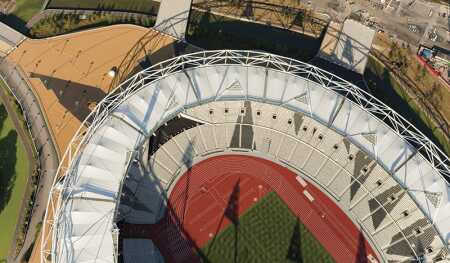ULI senior fellow Ed McMahon conducted a question-and-answer session with John Major, former prime minister of the United Kingdom, via e-mail. Major is scheduled to speak at the ULI Asia Pacific Summit in Tokyo at this year’s Leadership Dinner.
Question: London hosted the Games of the XXX Olympiad in 2012. The Games required more than £9.3 billion (roughly US$14.3 billion) of public sector funding. Many cities and some countries are balking at submitting Olympic bids because of the cost involved. What would you say to a city considering submitting a bid for a future Olympics? Are cities being asked to assume too much risk—in terms of finances, physical security, and other concerns—for the honor of hosting the Games? And shouldn’t cities spend the money on more pressing social problems?
Answer: It is expensive to host the Olympic Games and probably only appropriate for very large cities. Moreover, even large cities are likely to need the support of national governments—most obviously with financing preparation for the Games. In the past, some hosts have overspent or spent unwisely, but that need not be the case. Much of the expenditure on preparation—such as on transport improvement, housing the athletes, sporting facilities—can provide ongoing benefits. This has certainly proved to be the case in London. The cost of staging the Olympic Games is invariably high, but the benefits—many of them subliminal, such as tourist attraction—can be real and lasting. The Games are a wonderful shop window for a nation’s assets. It is not, therefore, a choice between spending the money on the Olympics or more pressing social problems, since the latter will be at least partially met by the infrastructure prepared for the Games.
Related: To Bid or Not to Bid: Making Global Events Work For City Development
Q: Do you have any ideas on how global sporting events like the Olympics or World Cup Football could be made more relevant and beneficial to the host country?
A: The best way to ensure the relevance of global sporting events is to provide facilities that have an ongoing benefit to the host country. I would strongly argue that the provision of sporting facilities falls into this category.
Q: The London Olympics were intended to serve as a catalyst for the revitalization of east London? In what ways has this been achieved? Have you seen any unanticipated results?
A: London has been revitalized by three developments over recent years: the redevelopment on the banks of the Thames; the business sector at Canary Wharf; and, most recently, the renovation of east London sparked by the Olympic development. All of these have provided a catalyst for ongoing improvements to transport, housing, and open space provision. If done well, Olympic provision can improve the overall quality of life in the host city for generations to come.
Q: What improvements to public infrastructure did the Olympic Games drive in London and the United Kingdom?
A: The improvements fall in three areas: rail and road transport; housing infrastructure; and open space and sporting provision. All were needed—all will have long-term benefits. However, the Olympic Games brought about these improvements many years earlier than otherwise would have been the case.
Q: What do you think are the key ingredients to a healthy city?
A: Sufficient jobs, high-quality housing, green open space, efficient public services—especially transport—and cultural and sporting provision. Cities are to be lived in and must not be soulless.
Q: What role does public transport play in creating a healthy city?
A: Public transport plays a key role, since without efficient transport any city can end up quite literally in gridlock—and, if there is no ease of movement, that can adversely affect investment, job provision, and leisure.
Q: Countries around the world are facing a growing problem of childhood obesity. In what ways can the built environment be reshaped to encourage more physical activity? Does government have a role to play in driving this change? And if so, is it more appropriate at the national or local level?
A: Obesity is a growing problem in many prosperous countries, and appears to be caused by an unhealthy diet and lack of exercise. That is yet another reason why cities need green open space and both outdoor and indoor sporting provision. Sporting facilities are not simply a desirable addition to a city, but an essential part of it. It does not matter whether this is provided by national or local government. What does matter is that it is available both for the young and old. It emphasizes that the best developments have a health aspect—as well as being important to living standards and the environment.
Q: What are your proudest domestic accomplishments as prime minister of the United Kingdom?
A: There are perhaps three areas where I hope my own contribution made a difference. The first is that I inherited an economy in recession and left one with steady growth, low inflation, and rising employment. Second, I was glad to begin—and carry toward completion—the Northern Ireland Peace Process, which was then completed by my successor. And third—on a more prosaic level—I set up a National Lottery with the intention that the proceeds would be used for good causes, such as sport, the arts, and the national heritage, all of which are essential to a balanced life. Thus far, the lottery has distributed over £30 billion [approximately US$46 billion] to those causes, with this sum rising annually.
Q: What are your most important current pursuits, causes, or concerns?
A: Apart from my business and leisure interests, my most important current pursuits are working with a number of national and international charities.
Q: Is there anything that you would like to add?
A: Only that—as the world urbanizes—it should do so to the highest standard. Second-rate provision should be avoided, as it will only need replacing and be more expensive as a result.






